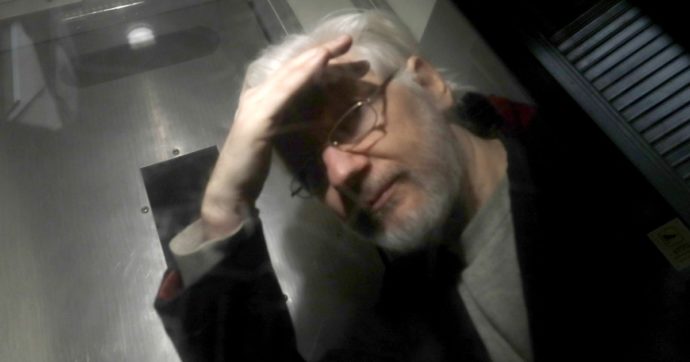The Assange case will decide the future of Journalism, and yet there is a deafening silence

It is a judicial case that will decide how far journalism can go in our Western democracies. Can a journalist violate state secrets when they cover up very serious human rights violations, war crimes against entire populations and systematic torture? That is what the Julian Assange and WikiLeaks case is about. And the Trump Administration’s attempt to imprison him for one hundred and seventy-five years for publishing truthful information in the public interest is unprecedented in the history of the United States. Yet there is a deafening silence. This week, the U.S. Department of Justice made public a new superseding indictment against Julian Assange: the news was barely covered by world media and has received very little attention.
The WikiLeaks founder is currently in the Belmarsh high-security prison in London, where he has already spent one year in increasingly precarious health conditions. The British authorities are holding him in prison until the extradition process, currently ongoing, decides his fate. There is only one certainty: since 2010, when WikiLeaks revealed the secret US government documents, Assange has never known freedom again.
Any attempts by the United Nations to intervene in this case have been rejected, as the UN Special Rapporteur on Torture, Nils Melzer, tells Il Fatto Quotidiano: “On 9 May 2019, I conducted a 4-hour visit to Julian Assange in Belmarsh prison, accompanied by two medical experts specialised in the examination of torture victims. Mr Assange showed all the symptoms typical for victims of prolonged psychological torture. Despite my repeated formal interventions through official diplomatic channels, and contrary to its international obligations, the UK Government has consistently refused to investigate the allegations made, to respond to my questions or to engage in a constructive dialogue with my mandate as required by the United Nations Human Rights Council. Although I formally protested against serious and sustained violations of Mr Assange’s dignity, integrity and procedural rights, and even voiced alarm that his life may be in danger, the UK Government has done nothing to address my concerns.”
The new superseding indictment, made public by the US Department of Justice this week, does not add new charges, but rather broadens previous allegations and implicates Julian Assange and WikiLeaks in hacking activities which allegedly go back to 2011. The document also refers to two people who, in different capacities, have collaborated with WikiLeaks: Sarah Harrison, the British journalist who flew to Hong Kong in 2013 to help Edward Snowden seek asylum, and the American citizen Jake Appelbaum, a journalist and privacy expert. The indictment doesn’t mention them openly, it only hints at them using an acronym to shield their identities. At the moment it is not clear whether the US authorities are preparing to indict Harrison and Appelbaum as well.
“The allegations added in the newest indictment appear to be a gratuitous attempt to paint Mr. Assange as a “hacker” or someone who associates with “hackers” rather than a journalist”, the US lawyer, Barry Pollack, tells Il Fatto Quotidiano. Pollack, who is part of Assange’s legal team, adds: “The effort amounts to nothing more than window dressing. The charges have not changed. Mr. Assange is charged as a result of newsgathering and publication of truthful and newsworthy information. Efforts to paint Mr. Assange as something other than a journalist cannot hide the fact that Mr. Assange is being charged for his activities as a journalist. These charges are a threat to journalists everywhere and to the public’s right to know”.
The WikiLeaks’editor in chief, Kristinn Hrafnsson, also characterises the new indictment as a distraction. “This addition”, Hrafnsson tells Il Fatto Quotidiano, “is an obvious attempt to distract from the main elements of the indictment that seeks to punish receiving and publishing material exposing the crimes and wrongdoing of the United States, such as those which can be seen in the Collateral Murder video”.
This new superseding indictment comes at a time when Julian Assange’s health is more precarious than ever, considering the risk of him being infected by Covid in prison. This week, more than 200 physicians from all around the world published a new letter in the world’s leading medical journal, The Lancet.
“We are professionally and ethically required to stop, report and prevent torture wherever and whenever it occurs, regardless of risk to ourselves”, Doctors for Assange tells Il Fatto Quotidiano, “We are upholding that obligation here, and reporting the unlawful torture of Julian Assange – a journalist – to the citizens whose freedoms his torture endangers.”

